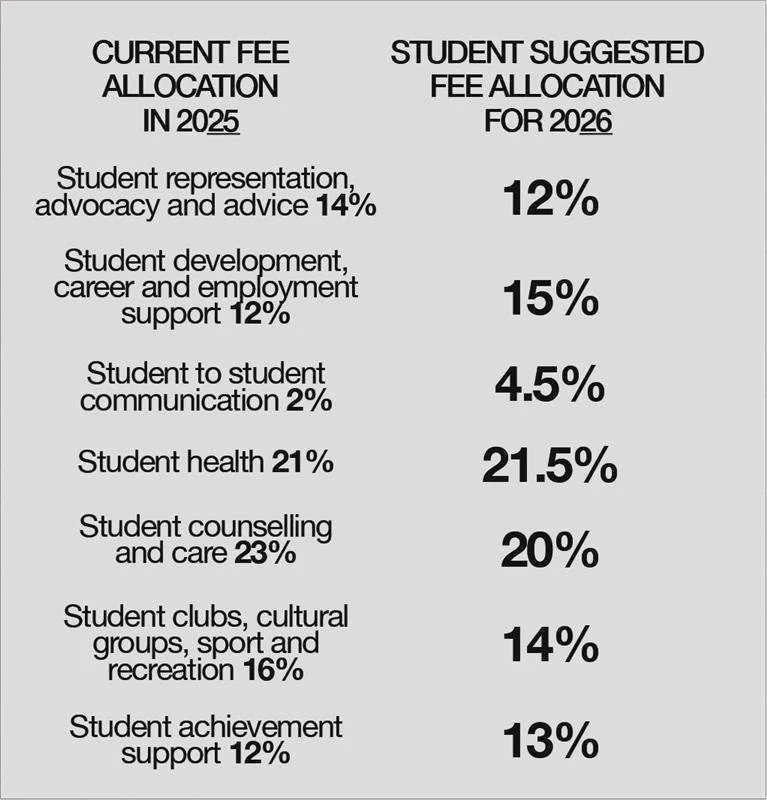Massey’s Student Services Fee to increase by 3% in 2026
Massey is hiking its student services levy by 3% for 2026 for inflation. For students already juggling tuition, rent, and living costs, the rise raises a familiar question, what exactly are they paying for?
All New Zealand universities, as directed by the Government’s Tertiary Education Commission, must charge a student services fee (SSF) that provides services and contributes to student life.
Massey itself uses this fee to provide student development, student achievement, career and employment support, health, counselling and care, sport and recreation.
It also funds a large part of the student association, Te Tira Ahu Pae, for representation, advocacy, clubs and events, and Massive and Radio Control.
Last year, the fee rose 5.7%, with internal students paying approximately $1,065.60 for a full 120-credit academic year, rising to $1,128 this year.
Currently, distance students pay $7.70 per credit, while internal students pay $9.40 per credit. However, it was not clear how the increase will affect distance and international students, or whether their fees will also rise by 3%.
Other universities have followed suit, with the University of Auckland proposing a 3.5% rise, and Auckland University of Technology’s choosing a 2.6% increase. A student services levy or fee is decided on a uni-by-uni basis, where they set their own price after consultation.
Massey, meanwhile, completed its own consultation with the Student Services Fee Advisory Group, a panel of four Massey staff, four Te Tira Ahu Pae staff, and ten students. The group meet monthly to review the fee, gather student feedback, and assess budgets and services supported by the fee.
A Massey spokesperson said the survey ran for three weeks in May, and gathered over 1,700 responses.
The survey revealed that 49% of students supported the rise, while 45% disagreed. 6% of students abstained from responding.
The survey found that Massey students rated health clinics, general health services, health promotion, counselling, and access to Student Job Search as the most important services.
The SSF is currently split across key areas with the largest allocation going to counselling and student health.
The survey also highlighted proposed changes to next year’s fee allocation.
The SSF Advisory Group took into account rising service costs and general living expenses when proposing a 3.3% increase, in line with annual CPI inflation. After student consultation, the increase was lowered to a clean 3%.
The spokesperson said students would receive notification of the increase when they enroll for the 2026 academic year via the Massey website.

